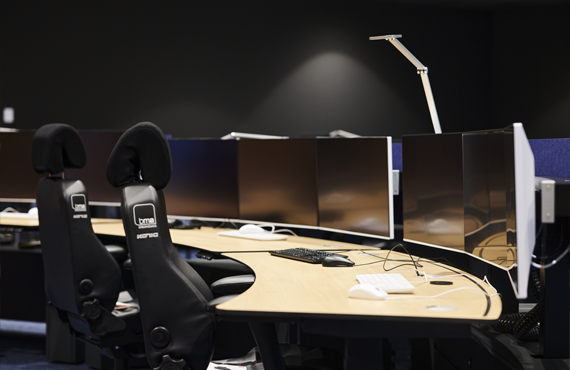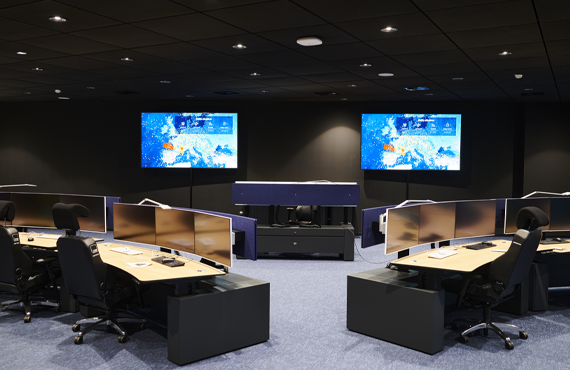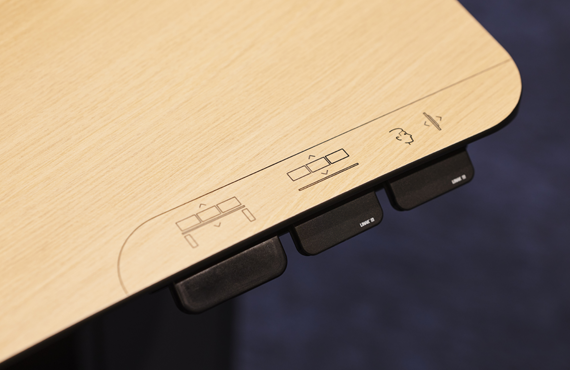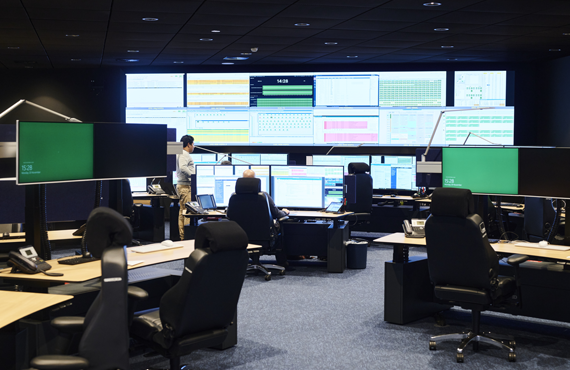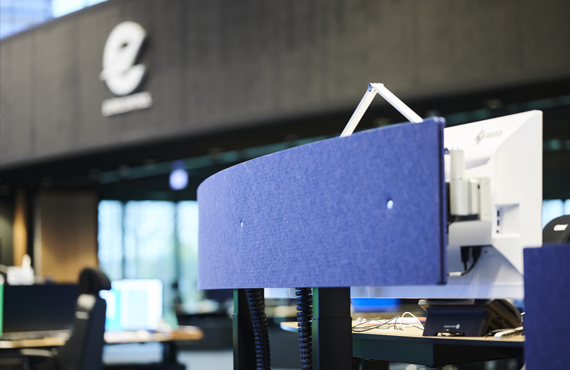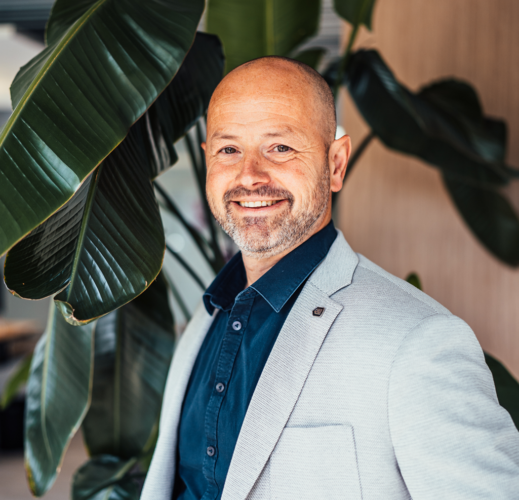Operators at the new EUROCONTROL Network Manager Operations Centre (NMOC) in Brussels are monitoring air traffic flows and efficient operation of flights from/to and over Europe via a fully integrated visualisation and collaboration solution with 121 ergonomic desks, hundreds of screens, with easy-to-use touch panels and specialised software. A project right up the alley of partners Whitemilk, Barco en CREON, commissioned by Cegeka.
EUROCONTROL’s new NMOC went live in October 2023. The state-of-the-art building and operations room are part of a digital transformation program – known as iNM, the integrated network management program – which intends to replace the core legacy systems that at this point still successfully ensure EUROCONTROL’s air traffic flow and network management, and have been doing so for over 25 years. From the new centre, the operators will be able to handle the 11 million flights expected in 2024 and 16 million flights per year by 2050.
Next to the construction of a new building, EUROCONTROL also wanted to implement a new way of working for the NMOC operators. This has been made possible with the installation of 121 ergonomic desks, hundreds of screens, equipped with touch panels and specialised software for the front-end support consoles and one desk of the Operations Managers. The project, commissioned by Cegeka, was a collaborative effort of project leader and system integrator Whitemilk, technology company and the reference in control rooms Barco, and control room desk specialist CREON, steered by the EUROCONTROL project team. For Barco, this project was another milestone in its long-standing relationship with EUROCONTROL since 2007.
Challenge: a new way of working for the future
In addition to the NMOC, the new building in Brussels also provides room for the front-end team, the IT service supporting the operations. A training room with twenty workstations was added, equipped with identical resources and consoles as the main room. The organisation’s biggest challenge was figuring out how to support the current operations while also preparing for the future.
By early spring 2022, Whitemilk and Barco presented a well-developed proposal to EUROCONTROL, including six large screens for the new NMOC. In terms of technical consoles, Whitemilk called upon the expertise of CREON. As a result, the project would now be led by three parties who understood the dynamics of a 24/7 environment. Based on the EUROCONTROL requirements and after extensive listening, research and strategic consultation about concept and design, the project team presented EUROCONTROL with the operator workstation of the future. “EUROCONTROL’s forward-thinking approach, coupled with their openness to innovative ideas, has been instrumental in shaping our collaboration. Their initial ideas provided a solid foundation, and we gained full confidence in crafting a control room experience that goes beyond the anticipated,” says Jan De Keyser, Managing Director at Whitemilk.
Solution: flexible visualisation and collaboration
The new centre features 121 ergonomic desks, over 300 screens, 6 TruePix LED video walls, a Barco UniSee LCD video wall, 7 OpSpace personal workstations, TransForm N networked visualisation, touch panels, and more. For this critical European infrastructure, key considerations included redundancy for high availability, the highest level of security, and maximum flexibility, from the sources displayed on the video walls to the operator workstations. Flexibility also means scalability: as the number of flights continues to
rise, and data exchange becomes even more extensive, EUROCONTROL wanted to be well-prepared.
The need to support the as-is situation but to be future proof, led EUROCONTROL to decide for a single console concept. This could replace the multitude of screens (two rows of around thirty screens) that the operators were used to. Front-end operators are now using Barco’s OpSpace consoles, combining a large LCD wall with two 42” displays for interactive work, on a clean and tailored to the operator Creon desk. NMOC operators have the same type of console but operate with three 32” displays. “In the past, each
desk had dedicated computers specifically equipped for certain functions linked to our data centre. Now, we wanted a clean operations room, without large computers in the consoles and enabling full flexibility,” says Matthis Birenheide, Head of Operations Support at EUROCONTROL. “Now you can perform any task from any console. They all have the same configuration, with the same number of screens.”
“Front-end operators in a control room are typically bombarded by a vast amount of information. With Barco’s OpSpace personal workstation, they can choose the form and size in which information is displayed. Using the same mouse, they can manipulate and interact with different sources or drag something from the large screen to a small display,” says Jonas Standaert, Territory Manager for Large Videowall Experience Benelux at Barco.
Ergonomic workspaces and video walls
The previous operations room was a repurposed office space that had been growing over a period of 25 years, and it was gradually bursting at the seams. New equipment had been added without sufficient consideration for ergonomics and for the diverse audience of the large control room. This setup was no longer ideal.
People in their twenties sit next to operators who are gradually approaching the end of their careers. Different ages have different needs. Another underestimated issue is the 24/7 environment: “People work in a stressful environment, but with a varying workload. There are a lot of facets to consider when designing sight lines, providing the right passages and ensuring that people can sit comfortably behind a desk. Together with Whitemilk and EUROCONTROL we elaborately studied sight lines and ergonomics, to ensure
comfortable sitting at a desk under various conditions, while preventing or reducing back, shoulder, or neck discomfort,” notes Steve Beeckmans, Product & Solutions at CREON.
In the search for the best possible functional and ergonomic solution, a series of workshops with the staff were planned, CREON provided a sample console and after installation familiarisation sessions demonstrated the flexibility and adjustability of the desks and chairs.
The attention for ergonomics also led to the creation of custom brackets for the LED screens. For ergonomic reasons, the six large LED screens had to be hung at a slight angle. This was a serious technical challenge. The team had to come up with the appropriate custom support structure to safely hang the massive weight of the screens.
“What you want to achieve is that the screens are seamlessly suspended,” says Jonas Standaert. “From a viewing angle perspective, they also need to perfectly align with the outline of the operations building. The screens are, so to speak, above the operators.
Smooth operations
“The flexibility we desired meant that we had to implement a state-of-the-art virtualisation layer on top of the existing backbone. This backbone has been well-maintained and further developed, still serves its purpose, but is reaching the end of its life cycle. Hence the iNM program,” says Matthis Birenheide. “The solutions may be complex, but all the complexity is under the hood. User-friendliness always took precedence. A simple example is the easily operable touch panels for the Operations Manager to manipulate the sic large
LED screens. Everything beneath the surface is out of sight.”
Matthis Birenheide: “Everything runs much smoother now. Of course, when you have been accustomed to an environment for years, it takes time to get used to the new situation, even if the new front-end is easier to use. Especially the support teams were expected to undergo a shift in attitude and mindset, and you also see a difference in generations. But all in all, it was a positive experience.”
Excellent teamwork
The project faced several challenges, not in the least because of the COVID pandemic and the ensuing post-COVID delivery crisis. This demanded a lot of creativity, but the team was able to stick to the timeline. According to Matthis Birenheide, a project of this nature typically takes six to eight years. EUROCONTROL managed to complete it in three years.
“There was no time for hesitation,” says Enzo Tselios, project lead at Whitemilk. “Hence, we delved deep into research, preparation, additional training and sketching out renders and views. We adopted a highly flexible approach. We collaborated with EUROCONTROL to eliminate as many unknown variables as possible. This allowed for quick decision making, and an efficient installation and configuration.”
“The speed at which we could work was the result of the mutual trust among Barco, CREON and Whitemilk. There was an open and transparent communication between us, and also with EUROCONTROL,” says Jonas Standaert. Jan De Keyser confirms: “The strength of the triangle is that we presented ourselves as one to our client and partner EUROCONTROL. We complemented and strengthened each other.”
The result was a seamless transition on October 30 to 31, 2023. Matthis Birenheide: “Thanks to Whitemilk, CREON, and Barco, the implementation of the workspaces went smoothly. The installation time was approximately 2.5 months. Quite significant for this volume and complexity!”


